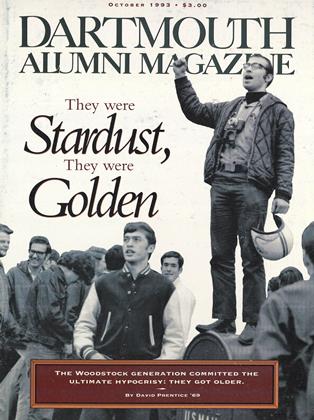WHY IS A BOOK (K2: The 1939Tragedy, by Andrew J. Kauffman and William L. Putnam), about a climbing expedition that took place more than 50 years ago, being published today? Quite simply, this expedition to the world's second-highest mountain and the trip's aftermath form what is possibly the most historic and controversial subject in twentieth-century mountaineering Led by Fritz Weissner, one of the top U.S. mountaineers, this early expedition attained an extraordinary height, only 800 feet below the 28,253 foot summit. However, on the descent from their failed attempt, Weissner, Dudley Wolfe, and Sherpa Dawang Lama found all their lower camps mysteriously stripped of sleeping bags. Wolfe, for not fully understood, remained high on the mountain. He and three Sherpas who later attempted to rescue him never returned. The puzzling events have been called one of the worst accidents in the climbing history of the Himalayas, and resulted in a series of investigations that failed to unravel the mystery.
Now Kauffman and Putnam, both former executives of the American Alpine Club, have dug up and sifted through the members' diaries and contradictory reports, and claim to have exposed the reasons for the expedition's catastrophic failure.
Three of the seven American climbers were Dartmouth students at the time: Chappell Cranmer '40, George Sheldon '40, and John (Tack) Durrance '39, all of whom returned alive. It was Durrance who had been generally blamed for removing the sleeping bags. Kauffinan and Putnam now say this was a bum rap, and that no single member is responsible for the tragedy.
It is a tale in part Dartmouth, in its entirety human, tragically human.
Durrance, Cranmer, and Sheldon Near Concordia,May 31,1939.
 View Full Issue
View Full Issue
More From This Issue
-
 Feature
FeatureTwo Women, Once Alive
October 1993 By Tig Tillinghast '93 -
 Cover Story
Cover StoryWe were Stardust, We were Golden
October 1993 By David Prentice '69 -
 Feature
FeatureNotes from the Biosphere
October 1993 By Mark Nelson '68 -
 Article
ArticleDivers Notes & Observations
October 1993 By "E. Wheelock" -
 Article
ArticleThe Daughters of Eve
October 1993 By Karen Endicott -
 Class Notes
Class Notes1971
October 1993 By Thomas G. Jackson
Tyler Stableford '96
-
 Letters to the Editor
Letters to the EditorLetters
Sept/Oct 2006 -
 Article
ArticleThe Next Athletic Facility: An Indoor Imitation of a Cliff
Winter 1993 By Tyler Stableford '96 -
 Feature
FeaturePrince Chiming
June 1995 By Tyler Stableford '96 -
 Cover Story
Cover StoryCarl Wallin Bary Harwick '77 Ellen O'Neil '87 Sandy Ford-Centonze
OCTOBER 1997 By Tyler Stableford '96 -
 Article
ArticleThe Delivering Duo
OCTOBER 1997 By Tyler Stableford '96 -
 Cover Story
Cover StoryDartmouth on Mount Washington
NOVEMBER 1997 By Tyler Stableford '96
Article
-
 Article
ArticleSTUDY OF FOREIGN LANGUAGES IN 18 COLLEGES SHOWS DROP
February, 1922 -
 Article
ArticleCOLLEGE REPRESENTED AT ACADEMIC FUNCTIONS
AUGUST, 1927 -
 Article
ArticleALUMNI WHO DIED IN VIETNAM
July | August 2014 -
 Article
ArticleFaculty
OCTOBER 1971 By ROBERT B. GRAHAM '40 -
 Article
ArticleThe Cover
May 1935 By The Editors -
 Article
ArticleA Sun-Powered Race Between Two Very Different Schools
December 1988 By Timothy J. Burger '88

